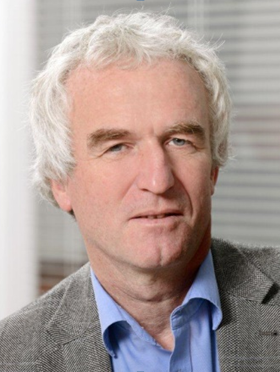Forscherdatenbank

Prof. Dr. Peter Lichter
Deutsches Krebsforschungszentrum
Im Neuenheimer Feld 280
69120 Heidelberg
Programm
Molecular Diagnostics, Early Detection, and Biomarker Development (MDEB)
Übersicht
Our laboratory applies oncogenomic approaches for the elucidation of pathomechanisms of tumor etiology and progression as a basis for novel treatment strategies and for the identification of prognostic and predictive genes and gene signatures. To this aim, we perform large screens using comprehensive molecular profiling technologies revealing tumor cell alterations at the level of the genome, transcriptome, methylome and chromatin. Integration of such data sets with clinical data allows us to identify candidate genes, which we subsequently test for their i) possible role in tumor pathophysiology, ii) potential as targets for novel therapy-strategies, iii) prognostic value to stratify patient subgroups for risk-adapted therapy regimens and iv) potential to predict therapy response or resistance in cancer patients. Within the last 5 years, we have greatly contributed to novel tumor sub-classification schemes that allow for stratification of cancer patients for different therapy regimens on the basis of molecular tumor profiles. This is particularly true for pediatric and adult brain tumors, breast cancer and low-grade B-cell lymphoma.
Candidate genes, for which we established a pathogenic role in carcinogenesis, are tested in pre-clinical in vitro and in vivo models using known inhibitors. More recently, we established and developed novel approaches for the generation of mouse models by somatic gene transfer that allow testing of gain-of-function and loss-of function candidate genes in an unprecedented rapid mode also including CRISPR/Cas technologies. Functional analyses are performed with special focus on tumor microenvironment and tumor metabolism. Strong emphasis is also put on uncovering processes that cause genomic instability and therefore drive tumor etiology and/or progression.
DKTK Junior Group Leader for Cancer Systems Biology
Single-cell approaches have not only revealed a wide variety of cell states, characterized by cells exhibiting striking differences in their transcriptional profile, but have also illuminated the mechanisms underlying state transitions in health and disease. Cellular plasticity and adaptive state changes have recently emerged as a basis for therapeutic resistance in cancer, and a better understanding of how cell state transitions are regulated is critical to develop therapeutic approaches that can overcome therapy resistance.
Our research focuses on understanding the mechanisms driving non-genetic cellular heterogeneity and therapy resistance in malignancy. Using novel single-cell sequencing approaches, we seek to develop new experimental and computational strategies to define altered cell states in both, cancer and immune cells. Our aim is to leverage a data driven strategy combined with single cell genomics and systems biology to address the challenges posed by heterogeneity in cancer, and to develop new strategies to overcome it, with the aim of translating laboratory-based findings into the clinic.